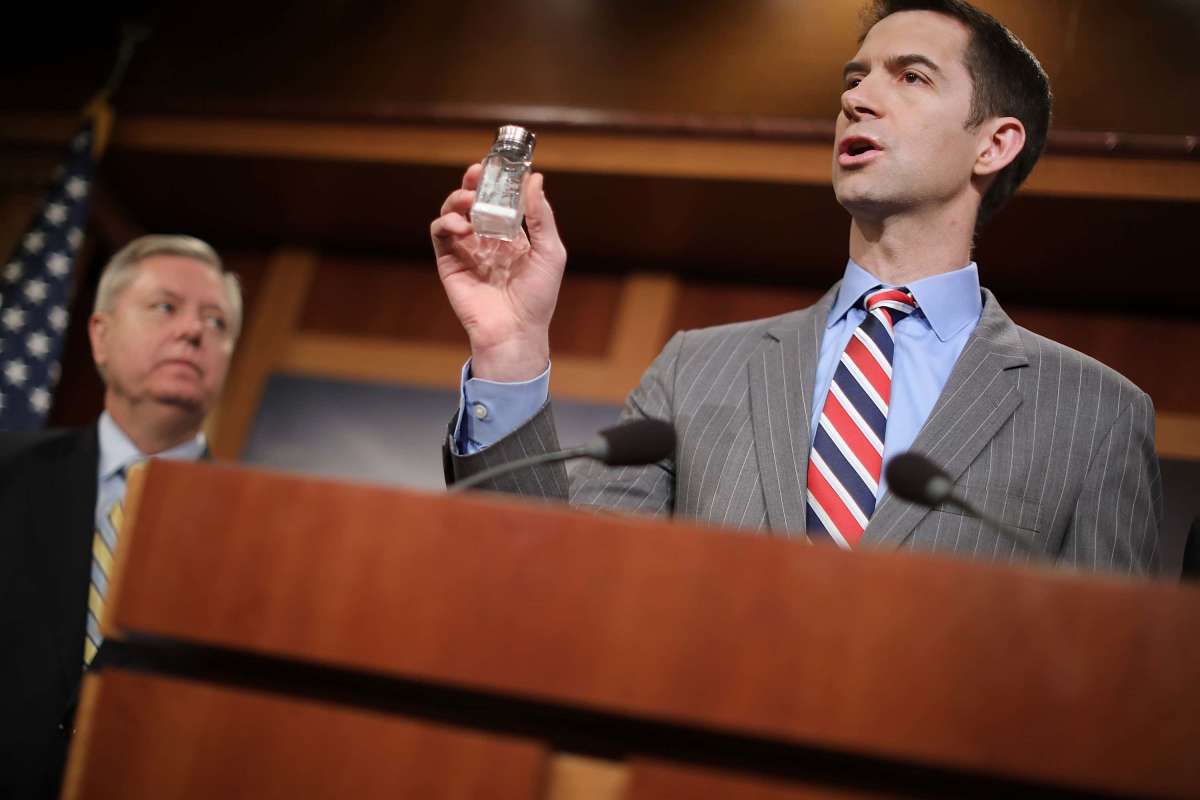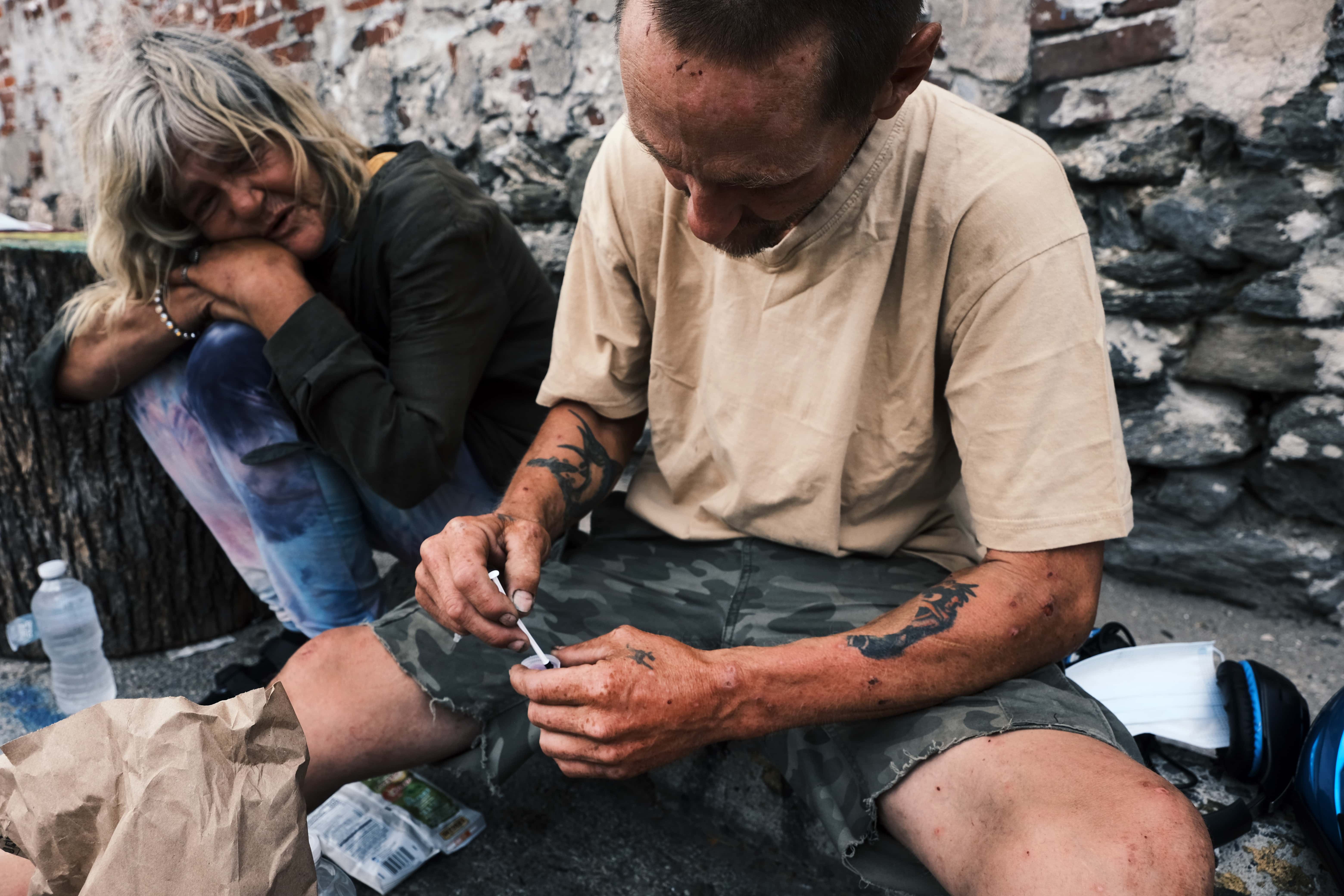Opioid Crisis: WH recommends fentanyl be added to Schedule 1 list

The Joe Biden administration on September 2 announced a recommendation to Congress, to battle the fentanyl-fuelled drug crisis. The White House wants the synthetic drug to be added to the list of Schedule 1 drugs while excluding them from quantity-based mandatory minimum penalties. The plan would help address America's growing overdose crisis, while "protecting civil rights and encouraging scientific research," the acting director of National Drug Control Policy said.
On September 2, Former Tampa Bay Buccaneers player Keith McCants died due to a suspected drug overdose. We also covered the death of a four-year-old in Carnegie, Pennslyvania in May from fentanyl. In June, we also reported on the fentanyl addiction porn star Dakota Sky was battling, prior to her tragic death. These are just some of the thousands of cases tearing apart families in the US, which the Biden administration wants to address.
READ MORE
Shock G: Digital Underground rapper died of fentanyl, meth and alcohol OD
Who is Barry Arnold? Long Island doc arrested for trading opioids and Xanax for sex
Overdose-related deaths have also skyrocketed due to the pandemic, with people forced indoors and isolated from friends and family. At the heart of the crisis is fentanyl, a synthetic opioid that has become an increasingly popular way to cut heroin and now cocaine. Because it is so cheap, it has become the go-to for drug makers, but it is also fuelling a massive rise in death. To address this, the administration is calling for a massive change. Wondering what exactly Schedule 1 is and what it means? Here's the answer.

What are Schedule 1 drugs?
The Food and Drug Administration (FDA) has a classification system for all drugs, both legal and illegal in the US. The drugs are classified into 'schedules', a complex system based on both their medical value as well as the potential for abuse. It's important to note that a harsh schedule does not mean the drug is totally illegal, the criminal justice system will use the scheduling system as a guideline but has to take into account other factors.
For example, marijuana is still classified as a Schedule 1 drug, but punishments are often less severe as compared to other drugs in the same category like heroin. It's an insanely complex system, but a valuable one. The FDA's classification is not just used by the justice system, but also by the Drug Enforcement Administration (DEA) to provide access to the said drug, even for things like scientific research. The scheduling system was created by the FDA under the Controlled Substances Act, first passed in 1971 by Richard Nixon.
Under the act, drugs are scheduled into 5 classes - with Schedule 1 being the most restrictive and Schedule 5 the least. Schedule 1 drugs include marijuana, methaqualone, heroin, ecstasy, and LSD. The FDA classifies these as Schedule 1 because they have "no currently accepted medical use and a high potential for abuse." Schedule 5 drugs are those with the least potential for abuse, like Parepectolin, Motofen, and Lyrica. If you are wondering, cocaine, fentanyl, and oxycodone are all Schedule 2 drugs, i.e. drugs which could cause "severe psychological or physical dependence."

The battle against fentanyl
For years now, fentanyl has been classified as a Schedule 2 drug, mostly because of its use in pain management for cancer patients. In February 2018, the Trump administration guided the DoJ to make fentanyl a Schedule 1 drug, but it was only a temporary rule. It was extended till October 2021 by Biden in May 2021. Now, however, the administration is looking to make that classification permanent but will need Congressional help. It's up to Congress to make the change since the DEA would require years worth of scientific study and research before doing so.
The compromise proposed by the White House would mean that fentanyl would be heavily restricted, but punishments less severe, in a bid to prevent racial discrimination. In its press release, it notes that when the drug was temporarily classified as a Schedule 1 drug, only eight cases were reported by the DoJ in connection with fentanyl. In comparison, there were 93,000 deaths due to overdose in 2020.
While civil rights groups seem pleased with the compromise, Republicans aren't. " To protect our communities from the dealers pushing this poison, President Biden needs to keep them off the streets, not let them off the hook," Sen. Tom Cotton told Fox News. The battle against fentanyl is just one of the many the US is fighting against drugs. The administration has announced numerous plans to combat addiction and overdose, but few have made it past the divided Congress. By the looks of it, this recommendation too won't be adopted.










